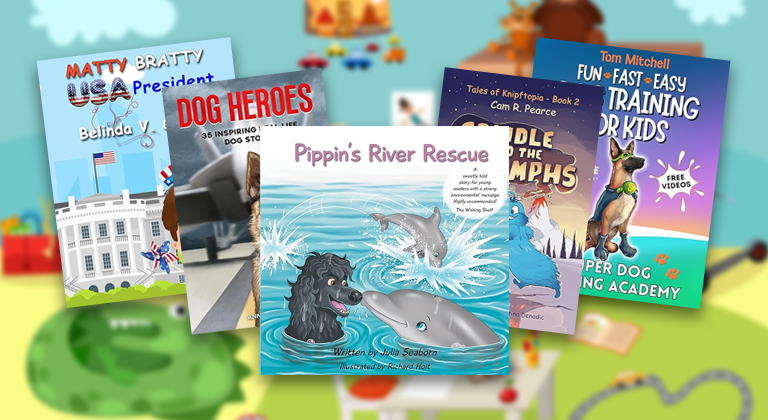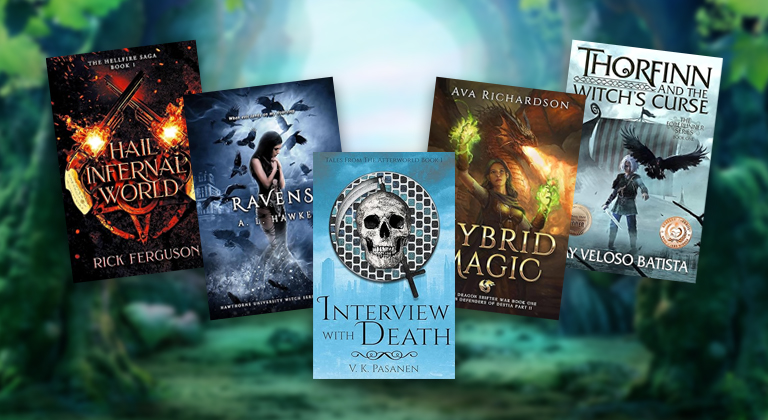The Dirty Secret About Keywords – Part 1
Today’s guest blogger isn’t so much a guest as a regular fixture around here. Nate has been with Hidden Gems almost as long as I have, and has helped me build it into what it is today because of his combination of technical know-how, industry knowledge and solid understanding of design. This article is slightly more technical than most of the ones we post, but really explains some of the often overlooked details of how Amazon’s search really works and the role that your keywords play. This understanding is essential to anyone looking to really make the system work for their books, and future installments of this series will build upon this to really give you an edge over the sea of competition your book is swimming against.
For authors old and new, keyword selection remains one of the most mystifying and frustrating parts of book marketing. The dirty secret about keywords is that much otherwise-productive time is wasted by guessing and second-guessing a marketing method whose importance is dwarfed by every other method used to market a book, including the cover and blurb, paid advertising, good reviews, and social media. By the end of this series though, confusion will be replaced with confidence, and you’ll have the tools to be a keyword commando. Also, I should mention that while this series will focus on Amazon keyword strategies, they can be applied to any other platform which accepts keywords.
A Little Bit of Keyword History
Amazon’s search algorithm, A9, is a little different than Google’s, but the basics are the same. It’s important to stay relevant. But since A9 is less a search engine and more an advertising engine, picking the most obvious (and most used, at least according to Amazon’s autocomplete feature) keywords is only part of the equation. The other (more important) aspect is the likelihood that your book will sell, so we’re talking your book’s cover, blurb, advertising, reviews–all of the components that are most likely to increase the number of clicks on your book, and the number of sales (or borrows, if you’re enrolled in KU).Your ability to tell a story and package a book matter light years beyond what even the most brilliant keywords will offer you.
The Three R’s of Keywords
Now that you know that keywords are not the be-all-end-all of book marketing on Amazon, we’ll talk about the three fundamentals of keyword selection and management:
- Reading
- Research
- Review
All successful authors read. If you aren’t reading something in your field each day (or at least weekly), then you need to stop reading this immediately, download some work by your contemporaries, make a hot drink, and curl up. Reading comes first. By reading, you learn how to write, and without knowing how to write, the best keywords on the planet won’t build you an audience.
The other thing you’re doing while reading is making notes of kinks you find interesting. Which brings us to research, by far the most important skill to have in self-publishing (or traditional publishing, for that matter) after being able to write in the first place. By researching books most like the one you want to write, you’ll find terms and natural phrases which will form the basis of the keywords that you’ll ultimately use for your story. You’ll also learn important things about genres/niches/tropes you might not have realized, which will increase your confidence in targeting your audience and/or give you an extra level of nuance that readers will appreciate. Blogs, forums, and websites related to your niche are an excellent resource as well. There is no shortcut to this process. It’s important to be patient and diligent.
Finally, you should review your keywords every once in awhile, because both language and trends constantly evolve. While it’s important not to get stuck in a constant loop where you’re chasing and tweaking your keywords, I generally take a look at mine every six months or so to make sure that I haven’t missed anything major.
The Long and the Short of It
When the time comes to actually choose the keywords for your book, you’ll likely feel overwhelmed by the sheer number of options. The most important thing you can remember about keyword selection is that you only want to use keywords that are likely and logical. “Likely” meaning that an actual customer might actually organically search for the term or phrase to find your book and “logical” meaning that you order the terms in your phrases the same way a customer would (and that you don’t use any of the keywords that are forbidden by Amazon). For example, you wouldn’t use the phrase “billionaire werewolf” if your book has nothing to do with billionaire werewolves, even if billionaire werewolf books are selling like hotcakes. So that phrase fails the “likely” test and should be discarded.
A long-tail keyword is a keyword phrase that includes multiple terms (between three and five is probably ideal), and is highly specific. If a reader uses a long-tail keyword in a query, they know exactly the experience they’re looking for. It might be “billionaire werewolf shifters” or “post apocalyptic billionaire werewolf shifters with fated mates”. If you can match these phrases exactly, your book has a better chance of being closer to the top of a list of search results.
A short-tail keyword might be a single term or a couple of terms, like “billionaire” or “billionaire werewolf”. These are highly competitive, and are used by readers who are in the mood to browse or who are otherwise looking for less specific results. The problem with them is that unless your book is selling well and can take advantage of the A9 algorithm giving your book more visibility, it might as well be on the moon.
Browsing readers generally have short attention spans, and aren’t likely to browse beyond the first half-dozen pages of search results.
Don’t Be Invisible
And speaking of visibility, keep in mind that A9 gives preferential treatment in search results to books that sell, books that are paying to be promoted, and books that are Amazon imprints. In short, Amazon has its thumb on the scale, so you need to ensure that your keywords have the most impact they possibly can. In order to do that, you need to forget all about keywords for a bit.
If you’re new to self-publishing, don’t bother attempting to fine-tune your keywords until you can produce (or afford) professional covers, blurbs, and polished (edited) content. I won’t go as far to say that you should leave your keyword fields blank, but until you have something worth selling and the ability to tell people why they should buy it at a glance, all of the keyword research in the world is actively working against you. It’s taking time you could be more productively spending elsewhere. The only crucial keywords to know at the beginning are Amazon’s character select and genre subcategories, and a handful of obvious terms and phrases that readers might use to find your book.
Once you have a great story? The cover is on point? You have a drool-worthy blurb? Great! Time to finesse your keywords a little. Remember, though, that keywords are passive, and at this stage, you need to be more active. Don’t wait for customers to come find you organically just because you think they should or because you’ve made yourself easier to find with clever keywords. Get yourself out there and build your audience. Promote. Advertise. Interact. Write more books.
Have a disciplined production schedule and a ravenous audience? Bored with lighting $100 bills on fire? Now it’s time to really perfect those keywords. I’m being flippant, but only a little. Organic searches via keywords are the very last way that readers are going to find your books. Far below active promotion. Below word-of-mouth even. People who are using keywords to search are generally looking for a book, not necessarily your book. Just something to keep in mind.
Also keep in mind that Amazon is like an ocean, and your books are boats, not islands–they’re constantly being pulled around by a current of new books, resurgent older titles being made popular again due to a promo, and/or by pop culture happenings. Once you’ve mastered keyword selection though, it’ll help anchor your books.
Next Time: Lock Down Keywords
Now that you know the basics of keywords and their relative importance in your marketing arsenal, you’re ready to get started with choosing and organizing them. In the next installment, we’ll go over best practices for choosing new keywords (like using Amazon’s predictive recommendations in your browser’s Private Browsing/Incognito mode), organizing them (order matters), and final thoughts about upkeep. I’ll also completely keyword a sample book.
Thanks a million for reading, and if you have any comments or questions, feel free to sound off in the comments below!












2 Comments